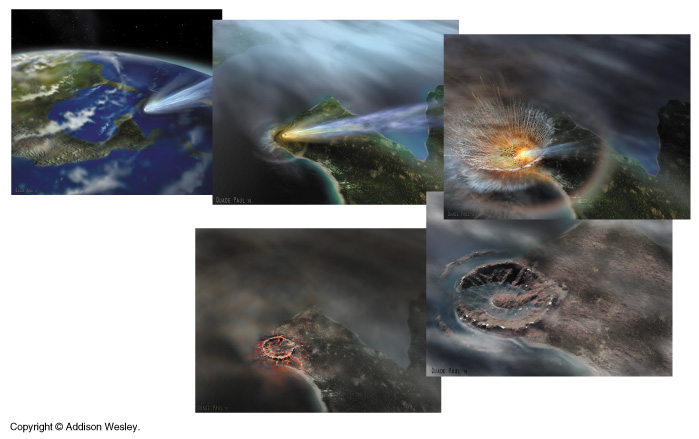Every science fiction novel has come to life: there was a
meteor impact in the arctic!
Not only is this bad news for the meteor, but the fragile
ecosystem is in trouble too!
| http://www.telegraph.co.uk/science/space/8494145/Giant-asteroid-heading-close-to-Earth.html |
Abiotic:
When anything large falls to the earth, it releases mass
amounts of energy. This energy creates
huge gusts of wind that would knock over anything in the surrounding area. Of course, there aren’t that many tall trees
in the arctic, but this could potentially create a blizzard. In addition, this impact would create a huge
crater and destroy the surrounding layer of permafrost. The collision would kick up dirt and debris
in order to create what is called an impact winter. The dust in the air blocks the sunlight
(which wouldn’t have much effect in winter, but in summer could be disastrous)
and drives down the temperature. In
addition, this debris paired with the energy sends chemicals into the air,
which causes acid rain.
Impact winter:
 |
| Addison Wensley |
Biotic:
Everything in the path of the meteor would instantly be
vaporized in the explosion. What does
survive will have to deal with the aftermath, including but not limited to:
loss of shelter, scarcity of food sources, and declining temperatures. Since the arctic is already desert-like, it
would be close to impossible for animals to survive unscathed. Many would be unable to survive in the
colder, darker environment, and most would struggle to find food, as many
plants would be destroyed.
The animals in best shape would be those adapted to the coldest and darkest environments. Of course, arctic animals have a particular advantage, but that doesn’t make them immune. Animals able to turn to multiple sources of food and migratory animals would be the best suited to this disaster. For example, caribou can just leave and find more favorable environments in boreal forests. Predators like bears can eat almost anything (grizzly bears are omnivores so they would be best suited, while carnivores like polar bears would have a little harder time), so they could probably survive a shortage of food. On the other hand, herbivores would have to compete for a dwindling food source, since most plants would barely be able to survive.
 |
| http://www.sfu.ca/geog/geog351fall06/group03/Leah's%20Pages/Pages/Grizzly_Bear.htm |
| http://www.clg-pagnol-bonnieres.ac-versailles.fr/sciences/spip.php?article356 |
At a large scale, the minuscule number of organisms in the
arctic will fall even more. Many animals
would die of starvation, and plants wouldn’t receive enough sunlight or water
to survive. Overall, the whole ecosystem
would be ravaged, and it would take months, if not years, to return to a
semi-normal state.
Thanks to:
No comments:
Post a Comment